Tesla users know that fast charging is not as ubiquitous as we would like it to be. The included J1772 adapter is only good when there is no rush. Today there is already a diversity among CCS1-to-Tesla adapters, mainly represented by 3 different basic models and a few Chinese replicas.
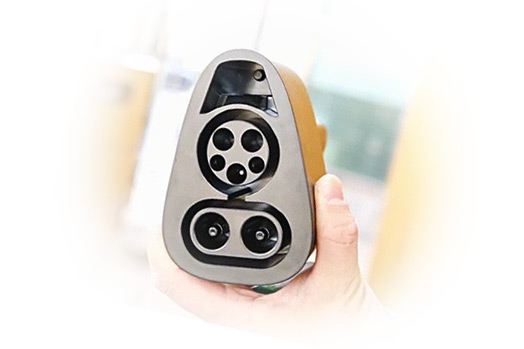
Comparison chart
| Image | Product | |
|---|---|---|
Best Choice 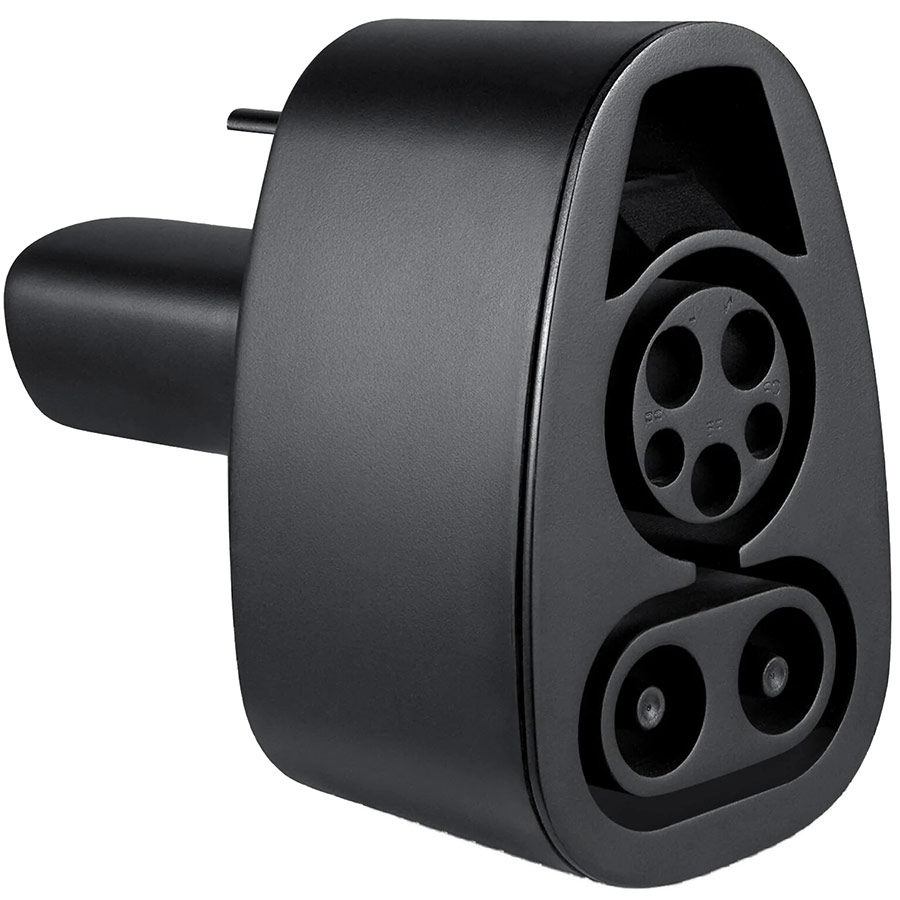 | Drop-shape
| Check Price VIEW TOP MODELS |
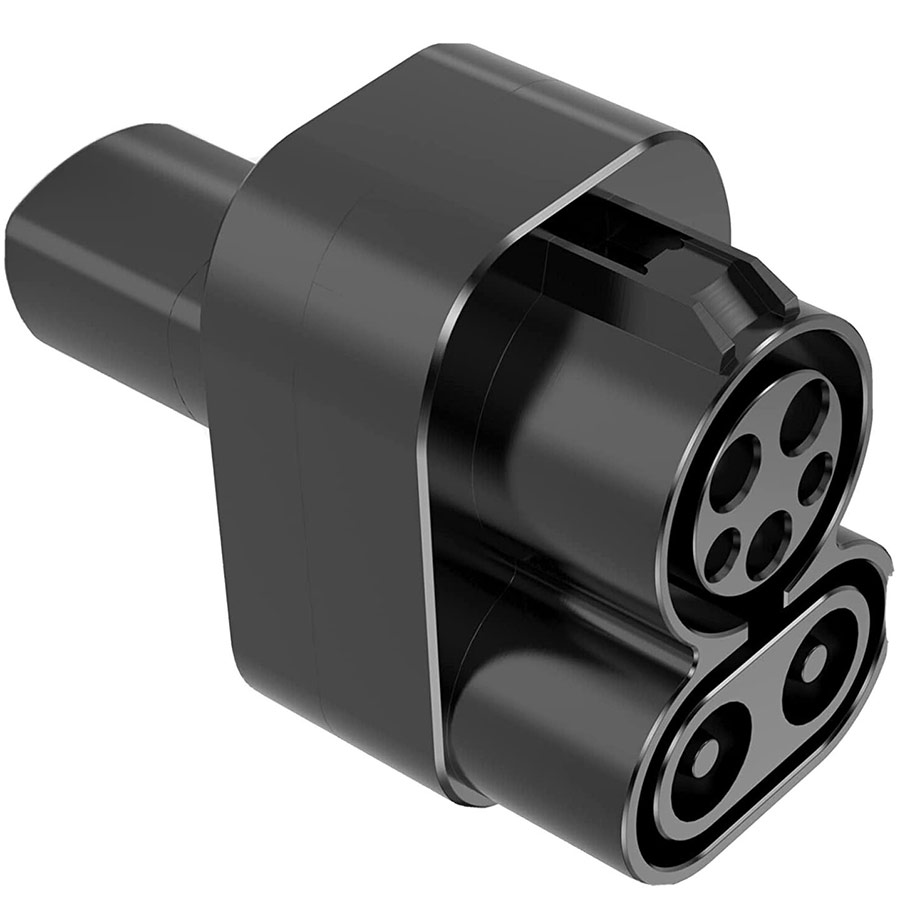 | Rectangle-shape
| Check Price |
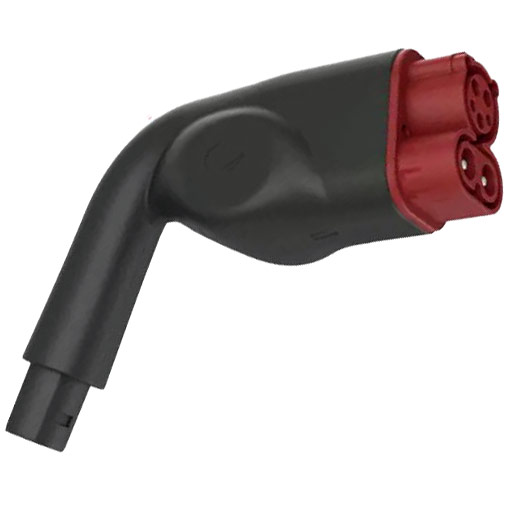 | Gun-shape
| Check Price |
Technical features of CCS Combo 1 adapters
| Genuine Tesla USA | Lectron • New gen | Lectron/Sitec • Old gen | ZVQ | |
|---|---|---|---|---|
| Form factor | Drop-shape,Compact | Drop-shape,Compact | Gun-shape & Bulky | Medium, Rectangle-shape |
| Max power | 250 kW | 150 kW | 50 kW | 250 kW |
| Software update | via EV connection | via EV connection | via USB connection | via EV connection |
| Network compatibility | EVgo, Electrify America + | EVgo, Electrify America + | EVgo, Electrify America + | EVgo, Electrify America + |
| Tesla models compatibility | Model S, 3, X, Y | Model S, 3, X, Y after 2021 | Model S, 3, X, Y with upgrade | Model S, 3, X, Y after 11/2021 |
| Availability to buy | Moderate | Easy | Moderate | Easy |
New generation models of CCS to Tesla adapters
- Get a great dealMar 5, 2026 9:15 AM
- Get a great dealMar 5, 2026 9:15 AM
What is the difference between the CCS models of the Tesla adapter?
The main difference is in the power limits and software upgrade path. Thus, the limits of the new proprietary Tesla adapter model are specified as 250 kW, unlike previous models with limits of 50–100 kW. The second feature is the automatic software update in the new and Korean models through communication with the vehicle, as opposed to the Sitec adapter with a USB interface.
Compatibility of adapters and model range
The disadvantage of the proprietary Tesla adapter is the need for updated vehicle software and a special charging component that is not installed on some models earlier than 2021. These electric cars will require upgrades to be compatible with CCS1 charging stations through the adapter. Starting in 2023, Tesla says this retrofit option will be available to owners of non-updated electric cars.
With non-proprietary adapters, if you disregard capacity limits, compatibility is better with respect to Tesla vehicles. So Sitec has been tested and is more adaptable to Model 3 and S, X,Y of different model years.
How many charging stations does CCS-network have?
Tesla has 22% of all U.S. fast stations. According to the U.S. Department of Energy by the number of fast-charging stations, Charge Point leads with 30% of the market, other providers except Tesla have 48%. Accordingly, 78% of the U.S. coverage is accounted for by the CCS DC Fast Charger connector standard.
Advantages of the CCS adapter for Tesla
You’ll have four times as many public fast-charging stations available to you.
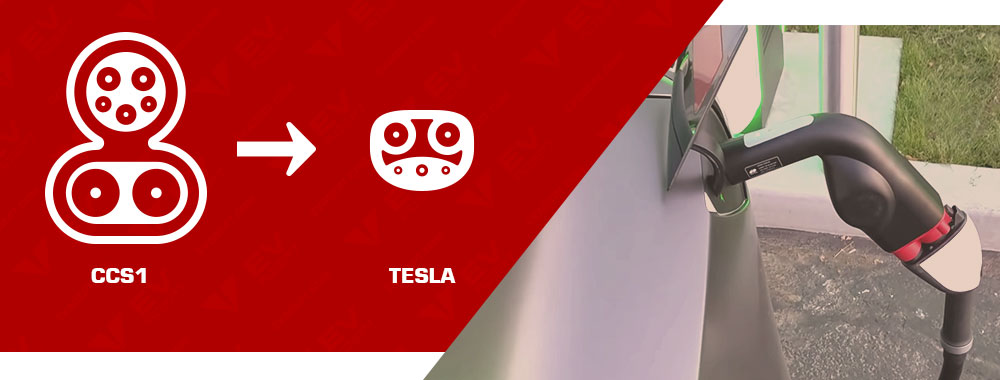
Which CCS to Tesla adapter should I choose?
Now there is a variety of models to choose from
- Genuine Tesla (USA)
- Lectron, analogue (USA)
- Genuine Tesla (Korea)
- Sitec/Lectron old generation
- Chinese replicas
The genuine adapter officially supported by Tesla in North America brought a sigh of relief to Tesla owners who have been experiencing a shortage of Supercharger stations. Pros and cons can be seen in the technical features chart.
If you don’t want to wait, a highly compatible CCS adapter from Lectron will be delivered quickly. Lectron is known for a number of quality products for electric vehicles, including adapters, home charging stations, and other devices.
The adapter from the Chinese company Setec Power was tested by us at the end of 2020 and passed the test among our customers. The other 4 manufacturers tested did not work consistently.
How much does it cost to charge Tesla at other manufacturers’ stations?
| Electrify America • 50KW OUTPUT (DC) | ChargePoint (per kW) • 62.5KW OUTPUT (DC) | Blink (Guests; per kW) • 50KW OUTPUT (DC) | |
|---|---|---|---|
| Tesla Model Y | $4.55 | $2.7 | $12.6 |
| Tesla Model S | $7.28 | $4.32 | $20.16 |
| Tesla Model 3 | $4.55 | $2.7 | $12.6 |
Calculate on a calculator, take CCS to Tesla Adapter with you and charge your Tesla. Sometimes when planning a trip, drivers have to rearrange the route to optimally reduce the waiting time while charging the electric vehicle.
Will the CCS to Tesla adapter be compatible with my Tesla?
Yes, this adapter has been tested on Charge Point, EVgo, Electrify America, and EVconnect stations. The firmware of this smart adapter is updated regularly.
FAQ
What is a CCS to Tesla adapter?
These are the three types of devices described here that allow Tesla owners to charge their electric cars on pay-per-use fast charging networks with a CCS connector.
Why would I need a CCS to Tesla adapter?
This adapter will come in handy for Tesla owners who are used to using the Supercharger network where there are few such stations along the route.
What are the benefits of using a CCS to Tesla adapter?
The main advantage is the availability of more fast charging stations than the Supercharger. CCS chargers are usually cheaper to use than Tesla’s Superchargers, so if you’re looking to save money on your charging costs, a CCS to Tesla adapter can be a good choice. The downside is the bandwidth limits, which are described in the current guide for each model.
Why would I want to use a CCS to Tesla adapter?
Sometimes the prices of CCS stations are lower than SC stations. A Tesla owner will benefit from this adapter if they travel or have more CCS charging stations on their route. CCS networks have more coverage than SC.
How does a CCS to Tesla adapter work?
The adapter is not only a conductor of high power current but also of data transmitted between the charging station and the electric vehicle. Therefore some of the adapters described here have software to transform data of different standards.
What are the different types of CCS to Tesla adapters?
The Tesla CCS Combo 1 adapters described here are divided into three form factors, varying in capacity measured in kW and compatibility with Tesla models.
What is the real power limit on Tesla CCS Combo adapters?
As you can see in the comparison table, depending on the form factor and generation, the speed and accordingly the power is limited in the range of 50–250 kW. At the same time, using a device with high capacity does not guarantee high performance, as the limit is often set by the vehicle software itself at 50 kW.
What is Tesla’s charging speed when using a CCS adapter?
Despite marketing claims, power is limited to 50kW. It will take 63 minutes to charge a Tesla Model 3 mid range. You can calculate the charging speed of another model using our calculator.
Are there any downsides to using a CCS to Tesla adapter?
First, your Tesla will not be automatically recognized as it is on the SC network and will have to use on-screen navigation, credit card, and sometimes the charging network app. Second, Tesla cars before 2020 will require retrofit to charge at CCS stations. Third, speeds will be lower more often than on the usual Supercharger.
How much does a CCS to Tesla adapter cost?
In our review, we explore several forms of adapter factors, and their prices range from $190 to $600.
Where can I buy a CCS to Tesla adapter?
A Tesla branded adapter is available to order from shop.tesla.com if your vehicle is marked as CCS compatible in their database. If you want a faster way to order with a free return option, then select the model in this guide.
What is a CCS charging station?
A CCS charging station is a public charging DC station that uses the CCS (Combined Charging System) standard. CCS charging stations are becoming more common in the US and Europe and offer a faster way to charge your Tesla via CCS Combo 1 adapter or another EV via proprietary inlet port.
What is the CCS standard?
The CCS standard from 2012 is becoming more common in North America (Combo 1) and Europe (Combo 1 and 2). CCS charging provides up to 350kW. 99% of new cars in the US, with the exception of Tesla, have a CCS connector for DC charging. Tesla can use CCS, with some restrictions, using an adapter.
What is the cost of using a CCS charging station?
Prices even in the same network vary considerably depending on the location. Compared to Supercharger, there are cheaper and more expensive ones. Until recently, the price of 17 cents per kilowatt was average, but things are changing rapidly. You can calculate the charging price on CCS in the calculator, including setting your own kilowatt price.
How fast can I charge my Tesla at a CCS charging station?
Tesla’s CCS Combo 1 adapter is the only way to charge your Tesla at a CCS charging station.
Can I use the CCS adapter for Tesla with J1772 plug-ins?
In short, no. Although the CCS connector looks like an augmented J1772 with two pins, they are different standards. J1772 is AC, CCS is DC.
What is the difference between CCS and J1772 adapters?
The J1772 adapter is designed for charging by home and public stations, AC up to 80kW. The CCS adapter is intended for use in public stations with DC power up to 350kW (the adapter itself has a lower limit depending on the model).
Can I use my CCS adapter at home?
No, CCS chargers are not designed for home use. CCS chargers are designed for public use with DC power. Tesla’s CCS Combo 1 adapter is the only way to charge your Tesla at a CCS charging station.
Which CCS to Tesla adapter is right for me?
Users opt for next-generation models, described here, with high bandwidths that offer faster charging speeds.
Can the CCS Combo 1 adapter be used in the rain?
The best models in the review have IP44 moisture protection, which allows them to be used in rain and snow.
How do I install a CCS to Tesla adapter?
No special installation is required. The use consists of connecting the adapter to the charging station plug-in and then inserting the device into the inlet of your Tesla.
What are some tips for using a Tesla CCS adapter?
Depending on the choice of model described in our cross-checklist, the water resistance may vary, so it is advisable to avoid use in rainy weather.
How do I care for my CCS to Tesla adapter?
Make sure that no foreign objects or dirt get into the contacts. Disconnect charging only at the vehicle console. Only then should you disconnect the adapter from the electric vehicle. Follow the other safety rules described in this overview.
How often should I use my CCS Combo 1 to Tesla adapter?
The frequency of use is not limited by manufacturers, but it is worth noting that the limits on the use of the adapter make its regular use less comfortable in comparison with the Supercharger.
How long will a CCS to Tesla adapter last?
If you follow our recommendations in selecting a model with careful handling, you can expect to get 2,000 or more uses out of it.
Do I need to do anything special to my car before using a CCS to Tesla adapter?
Yes, the Tesla car should be updated, which you can check if this is the case as described here.
What happens if I use a CCS to Tesla adapter with the wrong type of car?
You will only be able to apply the connector itself with Tesla. If the model does not support CCS charging, it will not detect the charger. There has been no information on damage from incompatibility.
Can I use a CCS to Tesla adapter with any type of models?
Your Tesla should have updated software and CCS charging capability, and using the top-rated adapter models from the comparison chart will add to the odds of success.
What are some common problems with CCS to Tesla adapters?
The first is the and most usual of the older generation of adapters described in the review. The second is the software of the electric car not being up-to-date. The third is the absence of a special charging module in the Tesla produced earlier than 2021.
How can I troubleshoot a CCS Combo 1 to Tesla adapter?
A common problem among our customers is breakage of the sensor pin when the adapter is dropped. Another problem is the low bandwidth, which is solved by selecting a Top-Selling CCS adapter model.
What should I do if my CCS Combo 1 to Tesla adapter is not working properly?
Make sure your Tesla meets the requirements described in this article. We also offer a 100% warranty and a free, no-questions-asked return policy.
How can I prevent problems with my CCS to Tesla adapter?
Do not disconnect the adapter during charging, protect it from falls, and protect the contacts from dirt and foreign objects.
What are some safety precautions I should take when using a CCS to Tesla adapter?
Do not use the adapter if it is defective, cracked, corroded, scuffed, broken or damaged. The adapter is non-serviceable and cannot be opened. Contact the manufacturer for any repairs.
What are the warranty and return policies for CCS to Tesla adapters?
The best manufacturers have an up to 1 year warranty on devices, usually free returns are available to all customers.
Contents
- 1 Comparison chart
- 2 Technical features of CCS Combo 1 adapters
- 3 New generation models of CCS to Tesla adapters
- 4 What is the difference between the CCS models of the Tesla adapter?
- 5 Compatibility of adapters and model range
- 6 How many charging stations does CCS-network have?
- 7 Advantages of the CCS adapter for Tesla
- 8 Which CCS to Tesla adapter should I choose?
- 9 How much does it cost to charge Tesla at other manufacturers’ stations?
- 10 Will the CCS to Tesla adapter be compatible with my Tesla?
- 11 FAQ
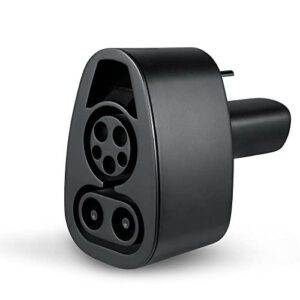
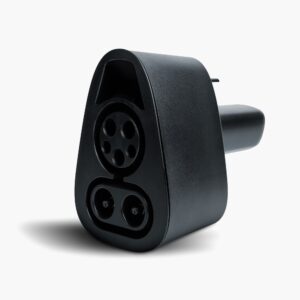
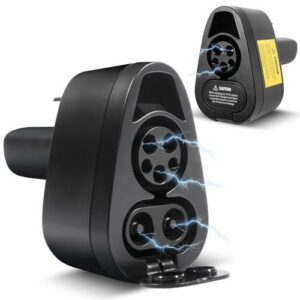

My S85 needs high voltage battery replacement. Do you do this or can you recommend someone that does?
2013 Tesla S, 85 kW @93,001 miles.
For battery replacement, we recommend checking here for a list of authorized contractors.
Electron is now selling a Tesla CCS adapter for $249. It is unclear whether or not it works with older Teslas that do not have the updated CSS charging capability built-in…
Sorry, Lectron…
Very little clarification about availability for used cars, I have a 2018 M3 and it is not at all clear if the adapter will work or not. How the upgrade will work and how much it will cost is also unclear.
Most adapters can be returned with no problem if they aren’t what you need. I was lucky and the Lectron adapter works. There is a 50kW limit. Reading the forums I realized that this limit will be on all adapters as Tesla introduces it through their software
Yes, I was surprised that Tesla had me running the gauntlet to buy an adapter. Not to mention the compatibility and return information
The arrival of this adapter gives me hope that networks will now grow even stronger
Does anyone have any experience with the Leсtron adapter? I don’t understand what the difference is.
I recently got the TESPLUS CCS to Tesla Adapter for my Model Y. Gotta say, it’s been a game-changer. I was on a road trip last month, and the number of CCS stations I found was impressive. The adapter worked flawlessly, and I didn’t notice any significant difference in charging speed. The only downside? It’s a bit bulky, and I wish it came with a carrying case. Anyone else feel the same?
I’ve been using the same TESPLUS adapter for my Model 3. Totally agree about the bulkiness. But considering the convenience it offers, I think it’s a small price to pay. By the way, did you notice any heating issues during prolonged charging?
Does anyone know if the HANSSHOW CCS Charger Adapter works with the older Model S? I’ve read mixed reviews online, and I’m a bit hesitant to make the purchase.
I’ve got an older Model S, and I’ve been using the HANSSHOW adapter for about six months now. No issues so far. But always double-check with the manufacturer or seller to be sure.
For those new to the EV world, here’s a quick guide on using the Rexing CCS to Tesla EV Charger Adapter: 1. Ensure your Tesla’s software is updated. 2. Plug the adapter into the CCS charger first. 3. Connect the adapter to your Tesla. 4. Monitor the charging process for the first few minutes to ensure a stable connection. Remember, safety first!
I’m on a tight budget and looking for a reliable CCS adapter for my Model X. Between the Tesla CCS Combo 1 and the Lectron, which one offers better value for money?
I’d recommend the Tesla CCS Combo 1, especially since they dropped the price recently. I’ve been using it for a year, and it’s been solid. The Lectron is good too, but I’ve heard a few complaints about its build quality.
I bought the Lectron CCS Charger Adapter last month, and it’s been giving me issues. Sometimes it doesn’t connect properly, and I have to jiggle it a bit. Anyone else facing this?
I’ve been comparing the TESPLUS and the HANSSHOW adapters. Both seem to have similar specs and are compatible with my Model 3. Can anyone shed light on which one’s more durable in the long run?
Pro tip for those using the Rexing adapter: Always ensure the adapter is clean and free from debris. I once had a slow charging issue, and it turned out there was some dirt in the adapter. A quick clean, and it was back to normal!
Heads up! Tesla is offering a limited-time discount on their CCS Combo 1 Adapter. If you’ve been on the fence, now might be a good time to grab one.
Anyone in the LA area interested in a group buy for the HANSSHOW adapter? I’ve spoken to a seller who’s willing to give a discount for bulk orders.
Just a word of caution for those using third-party adapters. Always monitor the charging process, especially during the initial stages. I’ve heard of a few instances where incompatible adapters caused overheating. Stay safe out there!